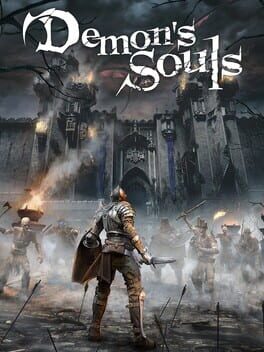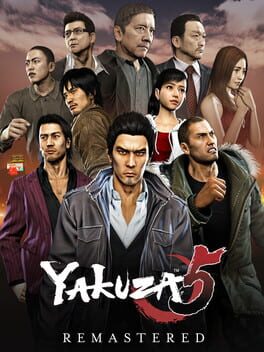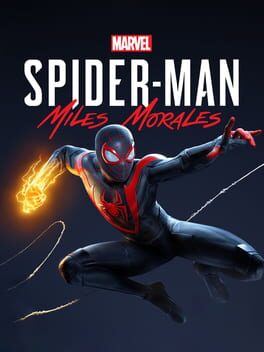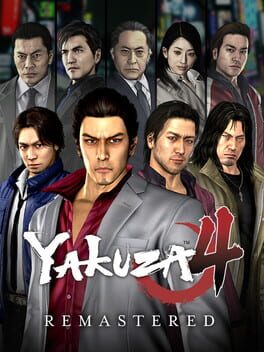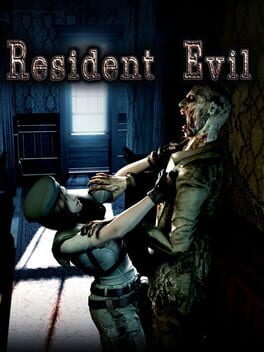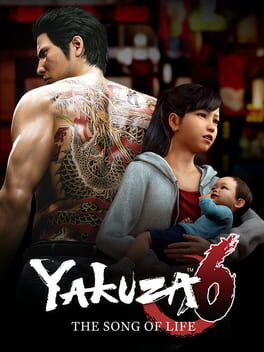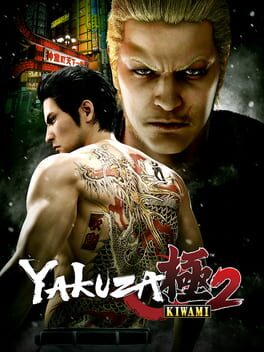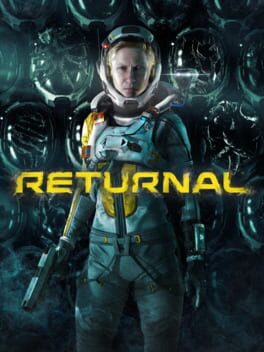emilem
2020
I expected a challenge going into Demon's Souls, what I didn't anticipate (but should have), was how much of a challenge.
The remake is faithful almost 100% to the original, for better or worse. Some of the design choices are questionable, and most of it was remedied when Dark Souls came out. The tendency system is horrifically flawed, and punishes you for failure, which is highly offputing if you do want to try and finish it.
During this game's best moments it's an engaging, incredibly satisfying gauntlent, at it's worst it's a frustrating ordeal that feels like it's laughing at you for trying.
The remake is faithful almost 100% to the original, for better or worse. Some of the design choices are questionable, and most of it was remedied when Dark Souls came out. The tendency system is horrifically flawed, and punishes you for failure, which is highly offputing if you do want to try and finish it.
During this game's best moments it's an engaging, incredibly satisfying gauntlent, at it's worst it's a frustrating ordeal that feels like it's laughing at you for trying.
2019
In Yakuza 4 I feel like I never got to spend enough time with the characters individually, whereas here I am spending far, far more time with them. In the time it took me to complete Yakuza 3, 4, Spider-Man, and Miles Morales, I had only just got to the half-way point of Yakuza 5. Granted, I took part in the side-quests, not that they give you any grand reward but they are just fun.
However, even with this quintupling of content, I can't help but feel the story is underwhelming. The problem with stretching your story all across Japan is you need to have a damn good reason to pull it all together, and Y5 doesn't quite hit the mark.
In between downright frustrating characters in Haruka's story, a true stretch of connection in Shinada's and a villain whose objective is completely unclear ("I hate the rampant nepotism that the Yakuza Clans have been suffering from for so long. That's why I'm bringing my untrained son to lead the Omi Alliance!") Yakuza 5 fizzles out rather than comes together on an explosive finale.
Y4 has Kiryu, Akiyama, Saejima and Tanimura coming together atop the Millenium Tower for a climatic showdown with the main villains (and Daigo for some reason), Y5 ends with the characters splitting up for their own underwhelming boss fights.
However, even with this quintupling of content, I can't help but feel the story is underwhelming. The problem with stretching your story all across Japan is you need to have a damn good reason to pull it all together, and Y5 doesn't quite hit the mark.
In between downright frustrating characters in Haruka's story, a true stretch of connection in Shinada's and a villain whose objective is completely unclear ("I hate the rampant nepotism that the Yakuza Clans have been suffering from for so long. That's why I'm bringing my untrained son to lead the Omi Alliance!") Yakuza 5 fizzles out rather than comes together on an explosive finale.
Y4 has Kiryu, Akiyama, Saejima and Tanimura coming together atop the Millenium Tower for a climatic showdown with the main villains (and Daigo for some reason), Y5 ends with the characters splitting up for their own underwhelming boss fights.
2007
While the core gameplay of No More Heroes is immensely enjoyable, it is buried under a pretty dull and repetitive job system which is needed to progress.
The minigames aren’t too bad but the sheer amount of times you need to play them to earn enough money makes it such a slog. That being said, when you do get to engage in the combat, it's such an immense amount of fun that really should have been capitalised on more.
Each of the bosses are distinct, and require different playstyles to tackle, creating some really interesting and memorable fights. It's just a shame it only makes up about 30% of the game.
The minigames aren’t too bad but the sheer amount of times you need to play them to earn enough money makes it such a slog. That being said, when you do get to engage in the combat, it's such an immense amount of fun that really should have been capitalised on more.
Each of the bosses are distinct, and require different playstyles to tackle, creating some really interesting and memorable fights. It's just a shame it only makes up about 30% of the game.
2018
Spider-Man is a good game on the verge of being great, it's combat mechanics and characters are incredible, but they're held back by questionable enemy designs and a choppy story.
Its combat is immensely satisfying, but with enemies constantly wailing on you (granted I was playing on Spectacular mode) and mostly forgettable boss fights, it doesn't reach it's full potential.
This may also be the best representation of Spider-Man's characters in any medium, but they're all actors in a cobled-together story with odd pacing. Spider-Man comes close, and is absolutely the best Spider-Man game I've played, but it still needs some fine tuning
Its combat is immensely satisfying, but with enemies constantly wailing on you (granted I was playing on Spectacular mode) and mostly forgettable boss fights, it doesn't reach it's full potential.
This may also be the best representation of Spider-Man's characters in any medium, but they're all actors in a cobled-together story with odd pacing. Spider-Man comes close, and is absolutely the best Spider-Man game I've played, but it still needs some fine tuning
2019
It's always 50/50 in a game that starts as strangely as Control does. You hope there's a cohesive story under there and hope not to be dissapointed or underwhelmed by the end. Control does not let you down.
It throws you in at the deep end at the heart of this weird world; the Federal Bureau of Control, and let's you peel it back and discover it for yourself, very rarely does it spiral into tangents explaining what this world is about, by rather let's you discover it by osmosis. Spend long enough in the Bureau and you'll understand enough to know what's going on.
There's enough in the main plot to have you figure it out, but there's pages upon pages of flavour text and bonus missions for those who want to learn more. The gameplay is immensely satisfying and easy to get accustomed to, although it will always be endlessly frustrating being one shot by a grenade or flying object no matter how much health you upgrade Jesse with.
And the designs are fantastic. Each sector of the Bureau is incredibly distinct while still recognisibly being the OIdest House. And the characters as well, Trench, Darling, Emily, Amish, all of them kept the story immensely engaging, encouraging me to further unravel the mysteries of the Hiss.
It throws you in at the deep end at the heart of this weird world; the Federal Bureau of Control, and let's you peel it back and discover it for yourself, very rarely does it spiral into tangents explaining what this world is about, by rather let's you discover it by osmosis. Spend long enough in the Bureau and you'll understand enough to know what's going on.
There's enough in the main plot to have you figure it out, but there's pages upon pages of flavour text and bonus missions for those who want to learn more. The gameplay is immensely satisfying and easy to get accustomed to, although it will always be endlessly frustrating being one shot by a grenade or flying object no matter how much health you upgrade Jesse with.
And the designs are fantastic. Each sector of the Bureau is incredibly distinct while still recognisibly being the OIdest House. And the characters as well, Trench, Darling, Emily, Amish, all of them kept the story immensely engaging, encouraging me to further unravel the mysteries of the Hiss.
Miles Morales does a lot to improve on it's predecessor. It's story is vastly more cohesive (granted, pretty short), it's enemies are more fun to fight, and it's bosses aren't as gimmicky and actually provide an engaging challenge.
Miles, being a rookie hero, has a far more interesting development than Peter, and the message of the game; Be Greater, Be Yourself (in itself a clever expansion on the original's "Be Greater"), resonates beautifully throughout it. Even Miles' animations say so much about his character, he has boundless confidence while flying through New York, yet still stumbles every now and then on the landings, he still has a lot to learn.
The only issues that remain were that I never felt overly compelled to explore the sub-stories throughout NYC, aside from Uncle Aaron's Mix-tape, which was just an incredible side-story as opposed to a collect-a-thon
Miles, being a rookie hero, has a far more interesting development than Peter, and the message of the game; Be Greater, Be Yourself (in itself a clever expansion on the original's "Be Greater"), resonates beautifully throughout it. Even Miles' animations say so much about his character, he has boundless confidence while flying through New York, yet still stumbles every now and then on the landings, he still has a lot to learn.
The only issues that remain were that I never felt overly compelled to explore the sub-stories throughout NYC, aside from Uncle Aaron's Mix-tape, which was just an incredible side-story as opposed to a collect-a-thon
When I started playing Like a Dragon, it was difficult. I missed the old combat system, and I missed playing as Kiryu. It made the game a bit of a slog for the first half, and in my defense, the first half is a slow burner.
However, come the second half I came to terms with the fact that this was the new normal for Yakuza, that Ichiban and his crew were here to stay, along with the turn-based mechanics. Once I overcame that hurdle I was able to truly enjoy the game and it's unique combat system. And even though it starts slow at first, Ichiban's story is one of Yakuza's best. Kiryu was always stern and straight-faced, but Ichiban is incredibly emotional and that paves the way for some truly touching scenes that will stick with me for a long time.
There's a lot here I don't like still, some of the bosses suffer from the age old JRPG issue of requiring lengthy grinds to progress, and with these bosses once you find one effective move you loop it over and over until they die, it's something I hope they improve on with the inevitable sequel.
But there's so much to do here, so much to enjoy, and such an incredibly colourful roster of characters that I can't help but be completely enamoured by Like A Dragon, as much as I prefer the old combat system.
However, come the second half I came to terms with the fact that this was the new normal for Yakuza, that Ichiban and his crew were here to stay, along with the turn-based mechanics. Once I overcame that hurdle I was able to truly enjoy the game and it's unique combat system. And even though it starts slow at first, Ichiban's story is one of Yakuza's best. Kiryu was always stern and straight-faced, but Ichiban is incredibly emotional and that paves the way for some truly touching scenes that will stick with me for a long time.
There's a lot here I don't like still, some of the bosses suffer from the age old JRPG issue of requiring lengthy grinds to progress, and with these bosses once you find one effective move you loop it over and over until they die, it's something I hope they improve on with the inevitable sequel.
But there's so much to do here, so much to enjoy, and such an incredibly colourful roster of characters that I can't help but be completely enamoured by Like A Dragon, as much as I prefer the old combat system.
2019
I was expecting to have to wait a bit after 3 for Yakuza to really get into full swing again, but my god this game takes everything wrong with it's predecessor and massively improves on it.
No more stupid enemies that do nothing but block, and even if you have heavy blockers, your attacks now break them. No more stupid "Feel the Heat" where you have to mash R2 (???) to get an advantage. No more weak-ass Heat moves, all of them now do significant damage. Stepping into 4 was like stepping out the other end of the tunnel, Yakuza is back in full form and it's incredible.
However, while they've done a good job with making all these in-depth characters to control, I don't feel like I get enough time with them. I barely had a chance to get to fully explore Saejima before I'm whisked away to Tanimura, and Kiryu's chapter is miniscule in comparison, mainly used to round everyone up before Requiem. Sure I could spend time grinding the Master or IFR-7 sub-stories, but that doesn't change that the story brushes past them too quick.
The music is fucking sick though.
No more stupid enemies that do nothing but block, and even if you have heavy blockers, your attacks now break them. No more stupid "Feel the Heat" where you have to mash R2 (???) to get an advantage. No more weak-ass Heat moves, all of them now do significant damage. Stepping into 4 was like stepping out the other end of the tunnel, Yakuza is back in full form and it's incredible.
However, while they've done a good job with making all these in-depth characters to control, I don't feel like I get enough time with them. I barely had a chance to get to fully explore Saejima before I'm whisked away to Tanimura, and Kiryu's chapter is miniscule in comparison, mainly used to round everyone up before Requiem. Sure I could spend time grinding the Master or IFR-7 sub-stories, but that doesn't change that the story brushes past them too quick.
The music is fucking sick though.
2017
Hollow Knight is an amazing Souls-Like experience, that really has the heart of it's inspirations worn proudly on it's sleeves, while still being it's own gorgeous beast.
Visually it’s an absolute joy, with beautiful art and stunning effects to make exploring a pleasure and combat engaging. The gameplay is absolutely solid, the Knight controls excellently in both movement and combat, and landing hits on enemies just feels great.
However, navigating Hallownest can be a bit of a pain, there's an absolute mountain of envrionments to explore but with no easy ways to track your progress outside the markers (which are limited and can't be labelled), it's very easy to get lost and be unaware of what needs doing next.
And whilst most of the bosses are an absolute joy to take on, some of them do feel like they're difficulty for difficulties sake, a problem a lot of games in this genre tend to suffer from. Bosses that deal double damage, or have randomises attack patterns that put the player at a disadvantage, the Radiance (the final boss of the game), being the biggest culprit of this.
Visually it’s an absolute joy, with beautiful art and stunning effects to make exploring a pleasure and combat engaging. The gameplay is absolutely solid, the Knight controls excellently in both movement and combat, and landing hits on enemies just feels great.
However, navigating Hallownest can be a bit of a pain, there's an absolute mountain of envrionments to explore but with no easy ways to track your progress outside the markers (which are limited and can't be labelled), it's very easy to get lost and be unaware of what needs doing next.
And whilst most of the bosses are an absolute joy to take on, some of them do feel like they're difficulty for difficulties sake, a problem a lot of games in this genre tend to suffer from. Bosses that deal double damage, or have randomises attack patterns that put the player at a disadvantage, the Radiance (the final boss of the game), being the biggest culprit of this.
2002
Resident Evil is a classic, and I can fully see why. The ominous atmosphere, the horrifying enemies, the excellent sound design.
Beforehand I had only played the Resi 2 remake, a game I intend to revisit on my playthrough of the series, and expected a downgrade. However, aside from the tank controls occasionally causing Jill to go the wrong way (which only caused a Game Over once), this game is fantastic.
That being said it's not perfect, while the majority of the puzzles are great, and provide that sensation of "Aha! I know exactly what to do" when you get the last piece, towards the end there's a couple of "click-everything-on-everything-until-something-works" (Ah yes, the broken flamethrower is the key to this door). Plus, the inventory system seems largely arbitrary, and does little to effect the game outside of "Oh good, I have to trail all the way back to get this from the item box".
Still, it sets an incredible benchmark for the rest of the series, where it only moved strength to strength (despite a few hiccups down the line)
Beforehand I had only played the Resi 2 remake, a game I intend to revisit on my playthrough of the series, and expected a downgrade. However, aside from the tank controls occasionally causing Jill to go the wrong way (which only caused a Game Over once), this game is fantastic.
That being said it's not perfect, while the majority of the puzzles are great, and provide that sensation of "Aha! I know exactly what to do" when you get the last piece, towards the end there's a couple of "click-everything-on-everything-until-something-works" (Ah yes, the broken flamethrower is the key to this door). Plus, the inventory system seems largely arbitrary, and does little to effect the game outside of "Oh good, I have to trail all the way back to get this from the item box".
Still, it sets an incredible benchmark for the rest of the series, where it only moved strength to strength (despite a few hiccups down the line)
2019
Resident Evil 2 is an absolutely stellar remake, and should be used as an example for other IP's that wish to follow suite.
At the heart of it's gameplay the RE2make manages to keep the core of what made the original so tense, while improving just about everything else immensely. A shift from tank controls to a third person shooter is a large one but one that absolutely pays off, allowing more player control and even creating far more tense scenes than what would have been originally possible.
The lack of resources mean you have to plan your routes carefully, finding the safest and most efficient way through the RCPD, and because the map is altered by the way you play, your safe spots may be different to another players, forcing you to learn your own layout as best as possible.
The story is a bit basic, and only expands slightly on the universe developed in RE1, but each character is incredibly memorable, and makes playing through with both Leon and Claire's story a must.
At the heart of it's gameplay the RE2make manages to keep the core of what made the original so tense, while improving just about everything else immensely. A shift from tank controls to a third person shooter is a large one but one that absolutely pays off, allowing more player control and even creating far more tense scenes than what would have been originally possible.
The lack of resources mean you have to plan your routes carefully, finding the safest and most efficient way through the RCPD, and because the map is altered by the way you play, your safe spots may be different to another players, forcing you to learn your own layout as best as possible.
The story is a bit basic, and only expands slightly on the universe developed in RE1, but each character is incredibly memorable, and makes playing through with both Leon and Claire's story a must.
Playing the Yakuza franchise in chronological order has been great in terms of story, but it has meant some stark contrasts in terms of gameplay quality.
Were I to play in release order I would have gone from 5, to 0, to Kiwami, to here. In realising that, it becomes glaringly obvious that 0 and Kiwami were where Yakuza decided to get weird, and 6 is a welcome return to that weirdness.
Coming back to the absolutely stellar combat from Kiwami 2 is much appreciated of course. The game is just more willing to ease into it's goofy side, having ridiculous side quests, odd mini games and strange characters, but beneath all that is a simply incredible story, which brings the conflict closer to Kiryu than ever before, serving as an amazing send off to the Dragon of Dojima.
I have no doubts he'll return in some capacity, but his role as the saviour of the Tojo Clan is brought to a beautiful close, and one I won't forget any time soon.
Were I to play in release order I would have gone from 5, to 0, to Kiwami, to here. In realising that, it becomes glaringly obvious that 0 and Kiwami were where Yakuza decided to get weird, and 6 is a welcome return to that weirdness.
Coming back to the absolutely stellar combat from Kiwami 2 is much appreciated of course. The game is just more willing to ease into it's goofy side, having ridiculous side quests, odd mini games and strange characters, but beneath all that is a simply incredible story, which brings the conflict closer to Kiryu than ever before, serving as an amazing send off to the Dragon of Dojima.
I have no doubts he'll return in some capacity, but his role as the saviour of the Tojo Clan is brought to a beautiful close, and one I won't forget any time soon.
2017
I thought Yakuza 0 would stay at the top of the Yakuza series indefinitely, but Kiwami 2 has such a satisfying combat system, such a wealth of things to do, and such an incredibly intricate yet engaging story, while staying sufficiently cheesy where it needs to be. Ryuji Goda may be one of the best written villains in the series, towards the end you could be forgiven for rooting for him.
While it does have it's typical silly moments, it's also loaded with heart-felt scenes that make you connect with Kazuma Kiryu more than ever.
The one criticism is that the longer sub-stories (Majima Construction, Cabaret, bonding with Haruka), don't quite reward you in the way 0 does in providing the Dragon of Dojima fighting style, making them not really worth it unless you enjoy that sort of thing.
While it does have it's typical silly moments, it's also loaded with heart-felt scenes that make you connect with Kazuma Kiryu more than ever.
The one criticism is that the longer sub-stories (Majima Construction, Cabaret, bonding with Haruka), don't quite reward you in the way 0 does in providing the Dragon of Dojima fighting style, making them not really worth it unless you enjoy that sort of thing.
2019
A stunning, beautiful journey that I already wish I could play again for the first time, Outer Wilds is incredible.
The whole time I felt like I was on an adventure, like no other game could make me feel like, I was truly the hero in a story revolving around me, not the player avatar, but myself. Once it was solved, it was over, I can't replay it, I know how to solve it, and that's what makes it so special. It's a brief capsule, a lone chapter of the adventure I had in a far off galaxy, I played an important role in a fantastical galaxy, and it was wonderful.
I do wish that perhaps there was more interactivity with the world outside of the Scout and the Translator, but it is an absolute feat what Mobius managed to accomplish in designing puzzles with what little tools they give the player.
There is a part of me that wishes I could explore the star system that homes the Outer Wilds Ventures crew forever, but a larger part of me is forever grateful that I was able to visit at all, even if it means I won't go back again.
The whole time I felt like I was on an adventure, like no other game could make me feel like, I was truly the hero in a story revolving around me, not the player avatar, but myself. Once it was solved, it was over, I can't replay it, I know how to solve it, and that's what makes it so special. It's a brief capsule, a lone chapter of the adventure I had in a far off galaxy, I played an important role in a fantastical galaxy, and it was wonderful.
I do wish that perhaps there was more interactivity with the world outside of the Scout and the Translator, but it is an absolute feat what Mobius managed to accomplish in designing puzzles with what little tools they give the player.
There is a part of me that wishes I could explore the star system that homes the Outer Wilds Ventures crew forever, but a larger part of me is forever grateful that I was able to visit at all, even if it means I won't go back again.
2021
It's not often that I get hooked on a roguelike for the story, normally I get invested for the mechanics. Returnal is one of the few cases where both are so intriguing that I can't help but want to keep playing, which is an incredible feat given that a standard loop will take upwards of an hour.
Unraveling the mystery of Atropos, and Selene herself, is such a driving force that even when I wasn't playing the game I was thinking about it, theorising what there is to find, piecing together clues from Audio Logs and Xenoglyphs, and it finds a happy middle ground of giving you just enough to connect dots, but not enough to see the full picture.
It's important to note as well that the moment-to-moment gameplay is incredibly satisfying, so that when there are lulls in the story it doesn't matter as much because its still just a blast playing it. Admittedly a couple of the bosses (or at least the paths getting to them when you loop), are difficult for difficulties sake, and feel like they're there just to hold you back and extend game time, especially at the half-way mark. But when you get a good loop, with great gear, and you're riding that wave of Level 5 Adrenaline, it feels like an utter dream.
Returnal really is one of the best showcase of the PS5 so far, utilising it's SSD, GPU, and the amazing DualSense, to create a title that's up there with God of War and Spiderman in terms of Sony's first-party quality
Unraveling the mystery of Atropos, and Selene herself, is such a driving force that even when I wasn't playing the game I was thinking about it, theorising what there is to find, piecing together clues from Audio Logs and Xenoglyphs, and it finds a happy middle ground of giving you just enough to connect dots, but not enough to see the full picture.
It's important to note as well that the moment-to-moment gameplay is incredibly satisfying, so that when there are lulls in the story it doesn't matter as much because its still just a blast playing it. Admittedly a couple of the bosses (or at least the paths getting to them when you loop), are difficult for difficulties sake, and feel like they're there just to hold you back and extend game time, especially at the half-way mark. But when you get a good loop, with great gear, and you're riding that wave of Level 5 Adrenaline, it feels like an utter dream.
Returnal really is one of the best showcase of the PS5 so far, utilising it's SSD, GPU, and the amazing DualSense, to create a title that's up there with God of War and Spiderman in terms of Sony's first-party quality
